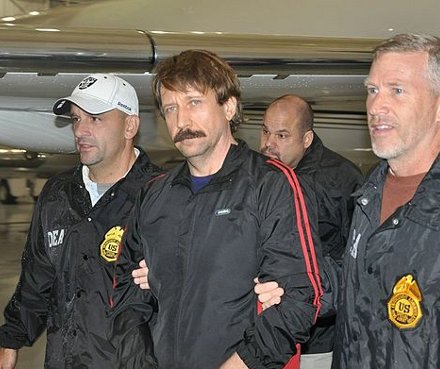
TBILISI, DFWatch – The international trade in weapons which fuels conflicts around the world may be brought under control, if talks in New York in July bear fruit.
If successful, the talks will lead to the world’s first Arms Trade Treaty, aimed at preventing weapons from reaching the hands of warlords and human rights abusers.
The trade in weapons is still little regulated on the international level, though some countries have strict national regulation. If the treaty is passed and ratified, it will force countries to follow a strict reporting system, preventing weapons from reaching countries and leaders which are likely to use them to violate international law.
Some have argued that the recent sentencing of Viktor Bout, a Russian weapons trader, demonstrates the need for a treaty. Others have pointed to the violence in Syria, and said the treaty would have prevented the escalating violence there.
The idea of having such a treaty was proposed as recently as in 2003 by a group of Nobel peace prize laureates led by Oscar Arias, and a proposal was put to a vote in the UN General Assembly in 2006. Only one country voted against: The United States.
The U.S. changed its position in 2009 under President Obama. Any treaty is practically meaningless without U.S. participation, because the country is responsible for 40 per cent of the global weapons trade.
It is uncertain whether a treaty will be ratified by the U.S. Senate, which requires a 2/3 majority. Even though the UN resolution which forms the basis for these talks explicitly says that an Arms Trade Treaty can not intervene in a country’s internal gun laws, more than half of the one hundred senators (45 Republicans and 13 Democrats) have said they will oppose a treaty which threatens the second amendment; the right to bear arms.
The National Rifle Association has warned it will show up in New York during the negotiations, which start July 2., and fight against the treaty if it undermines the rights of American gun owners.
On the international level, the Obama administration has signaled that it won’t let itself be held down by any treaty in choosing who to sell weapons to. Thomas Countryman, Assistant Secretary at the U.S. State Department’s Bureau of International Security and Nonproliferation, said April 16 that the U.S. position ahead of the talks is that it will reserve the right to export weapons to countries it decides is ok to export to.
“There are some arms exports that the US approves, after careful review in our process that other states in the world would prefer we not approve. These kinds of transfers, even with a universal ATT, would still be matters of national security, of national interest, and of bilateral diplomatic exchanges to seek to find mutual accommodations about our differing views of the world and the common interest of promoting regional security,” Countryman said.
It is uncertain how a treaty would affect the South Caucasus region. The Swedish peace research institute SIPRI showed in 2010 that the three countries have increased their military spending five-fold in ten years. It writes in its 2011 report that the military buildup in the region continues, with Azerbaijan topping the list globally with a 60% increase in the years 2008-2011. Armenia is tenth on the same list.
In case a future treaty will limit the Caucasian leaders’ access to weapons, it is another issue if this will have much impact on the nascent domestic military industries which both Azerbaijan and Georgia have recently started building up.

